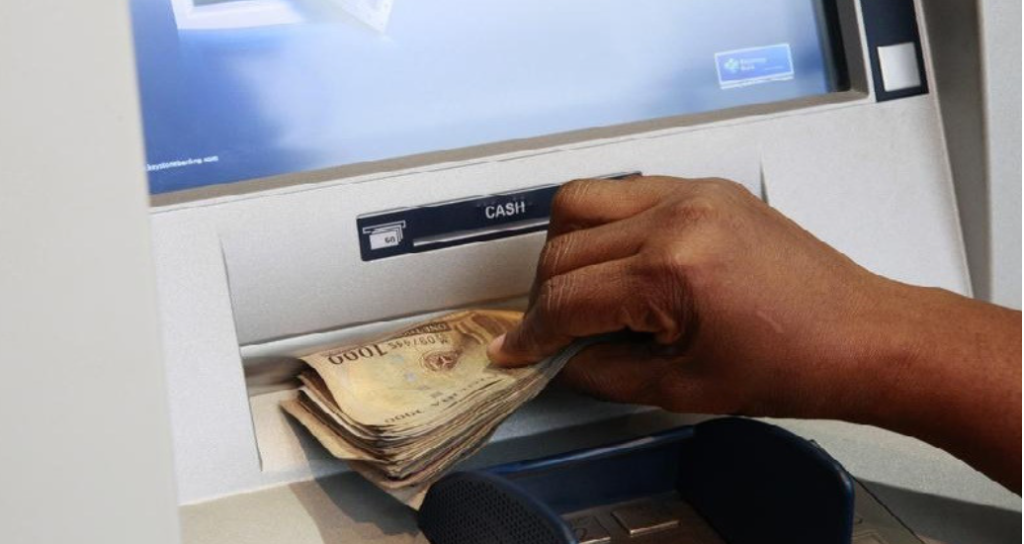Paragraph 1: Introduction of Revised ATM Transaction Fees in Nigeria
The Central Bank of Nigeria (CBN) has announced a revised fee structure for Automated Teller Machine (ATM) transactions, effective March 1, 2025. The new directive aims to streamline ATM charges and encourage the utilization of alternative digital payment channels. A key feature of this revision is the introduction of a N100 fee for withdrawals of N20,000 or less from ATMs belonging to banks other than the card issuer. This fee applies even if the withdrawal amount is less than N20,000, a measure designed to discourage customers from circumventing charges by making multiple smaller withdrawals. While withdrawals from one’s own bank’s ATMs remain free, the changes signify a shift in the CBN’s approach to ATM usage, potentially impacting the transaction habits of Nigerian bank customers.
Paragraph 2: Fee Structure for ATM Withdrawals
The revised fee structure introduces a tiered system for withdrawals from other banks’ ATMs. For amounts up to N20,000, a flat fee of N100 will be applied. For withdrawals exceeding N20,000, an additional N100 charge will be levied for every subsequent N20,000 or fraction thereof. This means a withdrawal of N45,000, for example, would incur a fee of N300 (N100 for the initial N20,000 and N200 for the remaining N25,000, broken down into two N20,000 increments and a final N5,000 increment). This tiered structure replaces the previous system which allowed three free interbank ATM withdrawals per month. Going forward, all interbank ATM withdrawals will incur charges, irrespective of the number of transactions.
Paragraph 3: Differentiation Between On-site and Off-site ATMs
The CBN’s directive further distinguishes between on-site and off-site ATMs. On-site ATMs, located within bank branches or directly affiliated with them, will apply the standard N100 fee for withdrawals up to N20,000, plus the tiered charges for larger amounts. However, off-site ATMs situated in locations like shopping malls, petrol stations, and other public areas, will attract an additional surcharge of up to N500 per transaction, on top of the standard withdrawal fees. This distinction highlights the higher operational costs associated with maintaining off-site ATMs and reflects the CBN’s intention to encourage the use of on-site or in-branch banking services.
Paragraph 4: International ATM Withdrawals and Cost Recovery
For international ATM withdrawals, the CBN has adopted a cost-recovery approach. This means that customers will be charged the exact fee levied by the international acquiring bank. This approach ensures transparency and allows customers to bear the actual cost of international transactions, which may vary depending on the specific ATM and location. The CBN’s move towards cost recovery for international withdrawals aligns with global banking practices and provides clarity for Nigerian customers conducting transactions abroad.
Paragraph 5: CBN’s Rationale and Consumer Protection Measures
The CBN has justified the introduction of the N100 fee for withdrawals below N20,000 as a measure to prevent customers from circumventing the tiered fee structure by making multiple smaller withdrawals. This ensures consistency in charges and discourages inefficient ATM usage. Furthermore, the CBN has emphasized that banks are not permitted to charge fees exceeding the prescribed amounts, although they have the discretion to reduce charges based on their individual business strategies. To protect consumers, the CBN has established a mechanism for reporting violations, including instances where banks compel customers to make smaller withdrawals despite having sufficient funds. Customers facing such restrictions are encouraged to lodge complaints with the CBN Consumer Protection Department.
Paragraph 6: Encouraging Alternative Payment Channels
Recognizing the potential impact of increased ATM fees on customers, the CBN has actively promoted the adoption of alternative payment channels. Customers are advised to prioritize using their own bank’s ATMs to avoid interbank charges. The CBN also encourages the utilization of digital banking services, such as mobile banking apps, Point of Sale (POS) terminals, and electronic transfers, to reduce reliance on cash withdrawals. This push towards digital transactions aligns with the CBN’s broader financial inclusion agenda and its efforts to modernize Nigeria’s payment ecosystem. By promoting these alternatives, the CBN aims to mitigate the impact of increased ATM fees while driving the adoption of more efficient and convenient digital payment methods.


